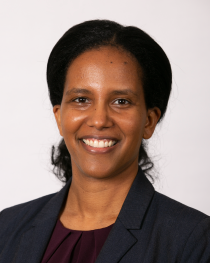The Family Caregiving Advisory Council held its fourth full council meeting on July 16, 2020, to hear expert presentations on Medicare and Medicaid and recommendations from family caregivers to improve caregiving support in the United States. The council is tasked with creating a National Family Caregiving Strategy, as required by the Recognize, Assist, Include, Support, and Engage Family Caregivers Act of 2018 (the RAISE Act).
The council meeting began with remarks from Administration for Community Living Administrator and Assistant Secretary for Aging Lance Robertson, who reflected on the progress made by the council, which held its first meeting in August 2019. He emphasized that the council has remained committed and engaged despite the ongoing pandemic.
Medicare and Family Caregivers
Center for Medicare Advocacy (CMA) founder and executive director Judith Stein and its associate director and policy director, David Lipschutz, presented their recent issue brief that explored Medicare and family caregivers. The CMA is a national nonprofit law organization specializing in Medicare coverage and appeals that works to advance access to comprehensive Medicare and quality health care. Their presentation focused on how Medicare could be modified to better support family caregivers.
Importantly, Medicare does not currently provide coverage for family caregivers and coverage is only available for personal care through home health aides, provided through a Medicare-certified home health agency. Additionally, a beneficiary must be homebound in order to receive any Medicare home health coverage and require a qualifying skilled service provided under a plan of care.
Stein and Lipschutz stressed that often those who qualify for Medicare’s home health coverage are unable to obtain coverage for care or all that is needed and covered by the current law. Stein additionally noted that many beneficiaries are not aware that Medicare home health coverage is not just a short-term, acute care benefit but that coverage can continue for an unlimited number of visits as long as the law’s qualifying criteria are met. The home health benefit, as stated in the CMA’s brief, is often “misunderstood, inaccurately articulated, and narrowly implemented” resulting in inappropriate barriers to necessary care and Medicare coverage.
Lipschutz noted that while Medicare Advantage plans provide greater access to in-home support services and caregiver services in some cases, individuals’ ability to access this benefit heavily depends on where they live, what plan they are enrolled in, and what a given plan offers in a given year. Greater access to the home health benefit would provide personal hands-on assistance to both the beneficiary and caregiver as well as respite, training, and boosted confidence in one’s caregiving abilities for the caregiver and safety and well-being for the patient.
Lipschutz highlighted a significant and growing disconnect between what Medicare home care is coverable under the law and what is actually available in practice. CMA officials recommend the following steps be taken:
- Ensure the scope of current Medicare home health benefits and home health aides are actually provided to the fullest extent of the law.
- Create a new, stand-alone home health aide benefit that would provide coverage without the current home-bound or skilled care requirements, using Medicare’s existing infrastructure as the vehicle for coverage.
- Identify other opportunities for further exploration within and without the Medicare program, including additional Medicare revisions, demonstrations, and initiatives overseen by the US Center for Medicare and Medicaid Innovation (CMMI).
Medicaid and State Programs
Bea Rector, director of the Washington State Department of Social and Health Services, gave a presentation on Washington State’s work on policy and programs for caregivers through Medicaid, focusing on caregivers of older adults and individuals with functional impairment. Rector noted Washington State has a growing population of people age 65 and older and highlighted its supports for family caregivers, including the state’s capacity to pay non-legally responsible family caregivers for Medicaid state plan and waiver services. Rector also noted the value of services that unpaid family caregivers provide, and the economics of supporting unpaid family caregivers.
In Washington State, caregivers are assessed and screened using an evidence-based, caregiver-centric assessment tool called TCARE for individuals to receive services, including caregiver assistance services, training and education, specialized medical equipment and supplies, and health maintenance and therapy-related services. As a result of the evaluation of assessment and supports for family caregivers, Washington State found recipients were less likely to enroll in Medicaid long-term care in the year after the screening of their caregivers. Washington State also found that 84 percent of caregivers showed improved key outcomes in the first six months following TCARE assessments, and that four out of five caregivers reported that the program and approach helped them understand the importance of taking care of themselves, and gave them the tools to do so.
Rector also highlighted work from Washington’s State’s Dementia Action Collaborative. The collaborative is a public-private collaboration to address the goals of Washington’s State Plan for Alzheimer’s disease and related dementias. The collaborative’s work included the creation and distribution of a Dementia Road Map resource for caregivers of those with Alzheimer’s disease or related dementias.
Additionally, Rector highlighted two pieces of non-Medicaid legislation to support family caregivers in Washington State. The Paid Family and Medical Leave Act, passed in 2017, supports paid leave to care for a family member with a serious health condition. The Long-Term Services and Supports (LTSS) Trust Act, passed in 2019, established a publicly funded long-term care insurance benefit for Washingtonians. Eligible participants receive a lifetime benefit of up to $36,500, which can cover services such as specialty training for caregivers, home safety evaluations, adaptive equipment, personal care, respite, and adult day services and is funded through a payroll premium. Rector also highlighted information about Washington’s state-funded kinship caregiver support program, which includes support for children’s necessities and kinship navigator services.
Rector concluded by providing suggestions and opportunities to support caregivers, including the following recommendations:
- Make policies to support paid family caregivers:
- Allow family to be paid as caregivers in Medicaid programs;
- Allow family members to administer medications and provide skilled services even when paid; and
- Increase access to nurse delegation programs by paid family caregivers.
- Expand services and supports to unpaid family caregivers:
- Offer care coordination and transition support;
- Offer state or Medicaid funding to support family caregivers; and
- Use evidence-based models.
- Support statewide legislation and policies, including:
- Family Medical Leave Act
- CARE Act
- Workplace caregiver-friendly policies
- Surveillance of family caregivers (e.g., BRFSS)
- Long-Term Supports and Services Trust
- Support federal legislation and policies that provide:
- Funding of Aging and Disability Resource Centers;
- Additional funding for Title III-E of the Older Americans Act;
- Specific programs that would provide enhanced federal match for caregiver-centric programs; and
- Ways to support states in implementing and sustaining evidence-based programs for caregivers.
Listening Sessions
Pamela Nadash, a professor at University of Massachusetts Boston, and Eileen Tell, principal and owner of ET Consulting, LLC, presented findings from the first four focus groups of family caregivers and solicited feedback from the council on the remaining sessions. Generously funded by The John A. Hartford Foundation through the RAISE Family Caregiver Resource and Dissemination Center, they recruited family caregivers across the age and disability spectrum to discuss potential policy solutions to better support family caregivers as well as their family caregiving-related challenges, needs, concerns, and barriers that prevent them from receiving necessary services and supports.
They asked listening session participants about their top concerns as caregivers and how they ranked their priorities, using the same kinds of questions and categories that mirrored the request for information that was sent out by ACL in December 2019. Caregiver training and education was a top priority for participants across all four groups. Caregivers expressed concerns about training for the medical aspects of caregiving as well as managing the anxiety and stress that often results from the caregiving role. Respite, workplace accommodations, information and referrals, and care coordination also emerged as top concerns. In terms of financial supports, participants expressed support for direct pay for caregiving, tax incentives to address the financial needs and impacts for the caregiver, and/or allowing some extra Social Security credits for hours worked as caregivers. With respect to workplace accommodations, overall, respondents felt that the options that exist were too limited. They will be holding more virtual listening sessions over the next several months, including a focus group for Spanish-speaking caregivers.
Report to Congress and Closing Remarks
The meeting concluded with a council discussion about the draft outline for the council’s initial Report to Congress. The meeting ended with a discussion of next steps, including where council members could send written feedback on the outline, and discussion of the format for the next council meeting, which is scheduled for Aug. 12, 2020.




